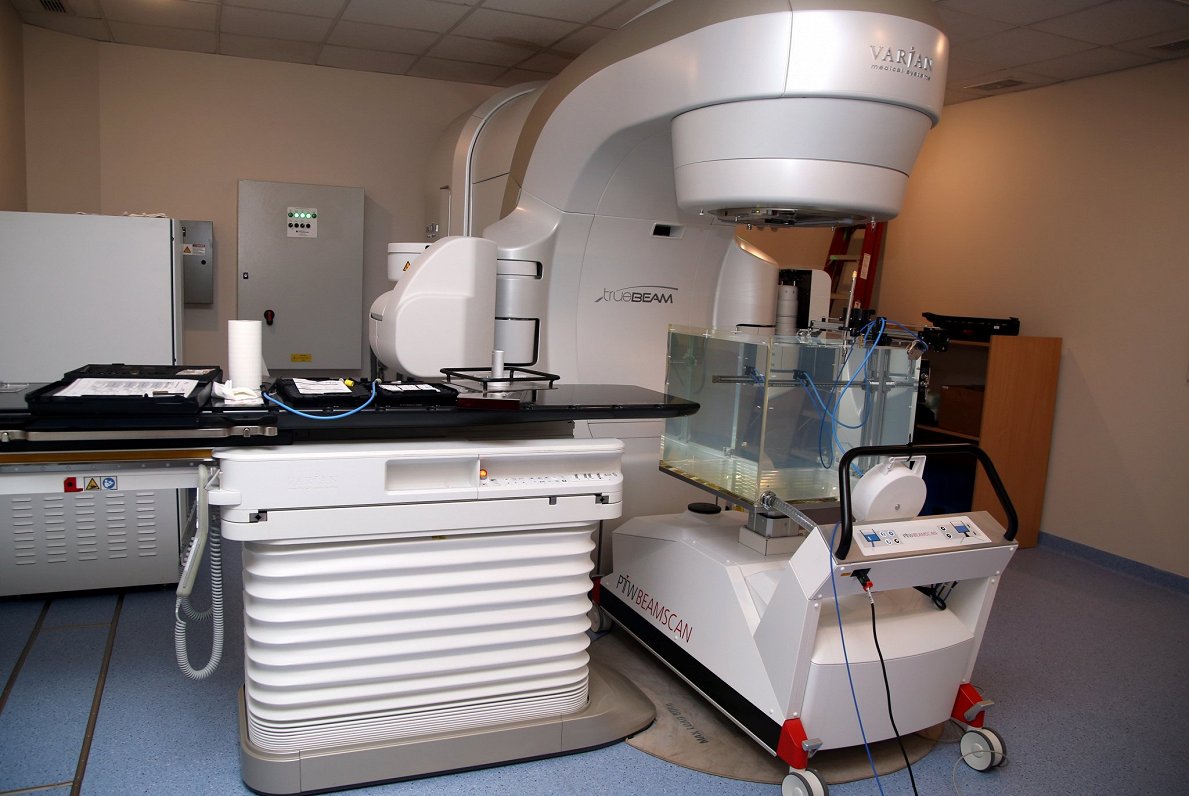Latvia is one of two countries in the European Union that do not have an accredited cancer centre of the Organisation of European Cancer Institutes (OECI). The other is Slovakia. This means that cancer patients are not necessarily treated according to international standards. The Latvian Oncology Centre is developing a country-wide system – Cancer Center. Meanwhile, Latvian Radio inspected what is and is not working in the current system.
A couple of years ago, Jolanta Kalniņa's mother Edīte was diagnosed with basal cell carcinoma (BCC) on her face. It was successfully treated, but last year the disease returned: the BCC appeared on the ear and under the armpit. Her daughter took her mother to a skin doctor, who assigned her to radiation at the Latvian Oncology Center. When the prescribed October date came, it turned out the equipment wasn't working.
“When she asked when she could start the radiation course, she was told they couldn't tell at the moment. To call at the beginning of the year. Well, okay. Then we called at the beginning of the year. There was still no equipment,” Jolanta said.
Last week, the Oncology Center confirmed once again that the equipment was still not working, but Edīte would receive treatment as a priority – as one of the first, but it is not known when it will be.
The Ministry of Health says that if the equipment did not work in one institution, it had to be searched for in another.
The Ministry also promises to carefully investigate this case, but it is just another event in a whole series of unfortunate events for oncological patients and in this medical sector as a whole. The problems have been highlighted even more vividly by attempting to establish a national Cancer Center and preparing for its international accreditation.
“It basically starts with prevention: smoking, nutrition, etc., which is primary in Europe, but in Latvia, it is not [treated] as important, unfortunately, yet. The next is screening, which in Latvia must be improved; further is diagnostics and treatments, and what follows is how we don't actually have – help for the patient throughout their life,” said Professor Sandra Lejniece, director of the Cancer Center's accreditation team.
In the process of accreditation of a cancer center, local specialists are consulted by international experts whose questions on cancer patients' care sometimes show what differences exist between the desired and existing levels.
"We were sent a questionnaire 'from Europe' on this issue so that we write how the state and banks support patients who have been treated for cancer. There was a question of whether they were given lower interest on the bank loan or whether they were repaid something. This means that in Europe, those who have been treated, are supported in that way, and we had to write everywhere that we have no such thing, it's not even discussed in the country," said Professor Lejniece.
Accreditation of the cancer center means arranging both documentation and processes, like the patient's way through the system, explained the professor. A pilot project for breast cancer patients has been launched in the Latvian Oncology Center to understand how to build such a way. As one of the biggest problems, the head of the clinical working group for breast cancer, Ilze Eņģele, outlined the acute staff shortages and low pay across the industry.
“If we start from the very beginning – screening, if we start with mammography assistants, with technicians – there is an absolute deficit. It's an extremely low-paid job. How can we can talk about screening if no one wants to do it,” Ilze Eņģele said. Other specialists are also overloaded. Other shortcomings – there is no uniform system that would remind each patient of another doctor's visit and doctors of the treatment stages.
As the strengths, Ilze Eņģele noted the successful cooperation between the various specialists and the sensitivity and care of the patient.
Overall, methodological management of oncology is planned to be developed by August 2026, but the Cancer Center should be established and guidelines for oncological care infrastructure adopted by August 2025. Half a million euros from the European Recovery Fund have been allocated for this purpose, but without public funding, the problems of the oncology industry that are highlighted in the accreditation process cannot be resolved.
The Ministry of Health says it doesn't want it to be just another beautiful plan that remains on paper.
“In any case, the availability of this data, including the establishment of the Cancer Center and all these measures, will enable us to prove to politicians that there is a need to invest sometimes in a more expensive treatment or investigation method that it contributes to our economy,” said Sanita Janka, director of the Health Department, of the Health Ministry.
"Let's be honest, very many oncological patients are of working age. Our goal is to return them to work as quickly as possible and that their taxes help treat other patients," Janka said.
This year, the government budget provides for an additional allocation of around €30 million to the oncology industry, but it has been said on several occasions that it is not enough to deliver on the commitments and plans made in the past.



























